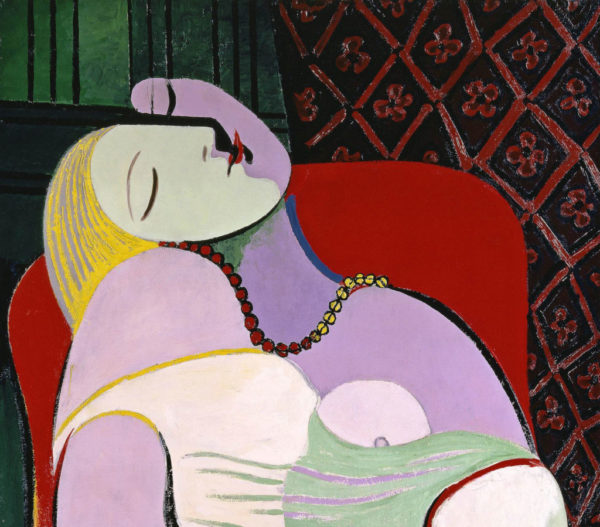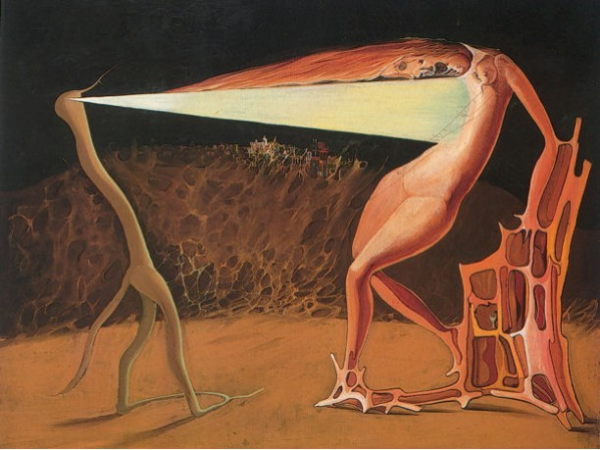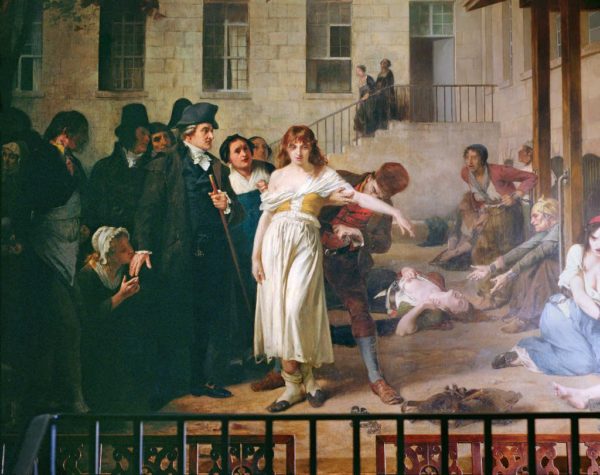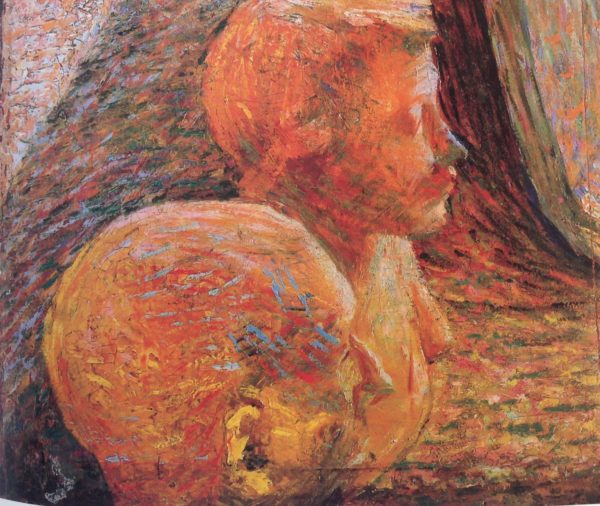Pagine
Iscriviti alla Newsletter
 invio in corso...
invio in corso...Condividi e segnala
Tag
- Althusser
- Antropologia
- Baumgarten
- Bourdieu
- Conceivability of Nothingness
- Conciliation
- corpo
- Derrida
- Dialectics
- Difference
- distinzione
- Europe
- Expression
- giudizio
- Grace
- Habitus
- Heidegger
- Hobbes
- Kant
- linguaggio
- Lyotard
- marxismo
- Medieval Aristotelianism
- Metaphysics
- Nature
- Negative
- Nichts
- nihil
- Nihilism
- nihil negativum
- nihil privativum
- Non-identical
- Nothing
- Nothingness
- onore
- politica
- postmoderno
- pratica
- riconoscimento
- Smith
- solitudine
- Sovranità
- Spinoza
- Thomas Aquinas
- Western Ontology
-
Articoli recenti
Link
Archivi categoria: NUMERO 7
Consecutio rerum 7, anno IV (1/2019-2020)
Filosofia e malattia mentale
a cura di Mariannina Failla e Francesca Iannelli
Pubblicato in NUMERO 7
Lascia un commento
Indice
Editoriale
MARIANNINA FAILLA, Il caleidoscopio della psiche
Monografica
FRANCESCA FANTASIA, Il mondo perduto. Follia e senso comune nell’Antropologia di Kant
CATERINA MAURER, Il contributo dello studio delle malattie magnetiche al superamento del dualismo anima-corpo. Una lettura hegeliana
MARIANNINA FAILLA, Dormire, vegliare e sognare: le vie della follia nell’antropologia di Hegel
ROSSELLA BONITO OLIVA, Nelle pieghe del soggettivo. La trama longitudinale e trasversale dello psichico
FABIO SULPIZIO, La crisi della malinconia. Philosophie e medicina in Philippe Pinel
SEHRII GRYSHKAN, Dialektisch-spekulatives Konzept der psychischen Norm in der Psychoanalyse
ROBERTO FINELLI, Una metafisica troppo
… Continua a leggere
Pubblicato in NUMERO 7
Lascia un commento
Il mondo perduto. Follia e senso comune nell’Antropologia di Kant
Francesca Fantasia
Humboldt Universität zu Berlin/Università degli studi di Palermo.
francescafantasia@hotmail.com

Abstract: This paper aims at foregrounding the Kantian conception of mental illness as a “disorder and deviation from the rule of the use of reason” (AA 07:216) and thus to examine this peculiar meaning of mental illness as a pathology of consciousness, where the latter is understood as the central structure of subjectivity guiding its theoretical, practical, and aesthetic actions. The starting point of this analysis is Kant’s systematic presentation of mental illnesses in his Anthropology from a Pragmatic Point of View (1798), which I will explore … Continua a leggere
Pubblicato in NUMERO 7
Lascia un commento
Il contributo dello studio delle malattie magnetiche al superamento del dualismo anima-corpo. Una lettura hegeliana
Caterina Maurer
Università di Trento
caterina.maurer@gmail.com

Abstract: This paper aims to show how Hegel’s interest in magnetic pathologies led him to focus on the mind-body problem as well as on the relation between rationality and preconsciousness. By analyzing the physiological side or basis of the magnetic state, it will emerge that these pathologies afflict both mind (Seele) and body. A closer look at the description of the organic disease given in the Philosophy of Nature will reveal that the psychic pathologies that Hegel describes in the Anthropology result from an uncontrolled reactivation of the subject’s preconscious … Continua a leggere
Pubblicato in NUMERO 7
Lascia un commento
Dormire, vegliare e sognare: le vie della follia nell’antropologia di Hegel
Mariannina Failla
Università degli Studi Roma Tre
mariannina.failla@uniroma3.it

Abstract: The essay starts from the role that the sleep/wake relationship plays in the sentimental dynamics: perceptive and judgmental, therefore at the dawn of the forms of self-awareness of the individual soul. We are in the context of the concrete feeling of self. In this context madness involves the contrast between the organic relationality of each psycho-body activity, what we could indicate as the totality of the concrete feeling of self, and sclerotization and fixation in the perceptual particularity imposed by the body to the idealizing activity of the soul. … Continua a leggere
Pubblicato in NUMERO 7
Lascia un commento
Nelle pieghe del soggettivo. La trama longitudinale e trasversale dello psichico
Rossella Bonito Oliva
Università degli Studi l’Orientale di Napoli

Abstract: Philosophy of the Subjective Spirit is an important theme in Hegel’s work. It thoroughly permeated his studies: a matter of continuous reworking in its specific subject. It is recalled in the philosophies of law, religion, history, and in the science of logic. Each of these moments, from soul to spirit, from unconscious to spirit, requires the philosopher’s observation and attention. It is not about creating a hierarchy or a progression, but rather observing an open scene, in which adventures and misadventures of Subjectivity evolve. This activity involves exploring … Continua a leggere
Pubblicato in NUMERO 7
Lascia un commento
La crisi della malinconia. Philosophie e medicina in Philippe Pinel
Fabio A. Sulpizio
Università del Salento
fabio.sulpizio@unisalento.it

Abstract: For Philippe Pinel, the concept of melancholy is one of the key methods for understanding not only a specific mental illness but also the new map of mental alienation. However, as Hegel shows in his work, the madness is not only a moment of growth in the history of the mind, but also a pattern of scientific intellect that builds a new science of the mind that is a science of humanity. It is the melancholy, however, with its complex and rich history, which represents the testbed of the nascent … Continua a leggere
Pubblicato in NUMERO 7
Lascia un commento
Dialektisch-spekulatives Konzept der psychischen Norm in der Psychoanalyse
Sehrii Gryshkan
Bergische Universität Wuppertal
Sergej.grischkan@googlemail.com

Abstract: There is a controversial question in psychology in general and in psychoanalysis in particular concerning the definition of what is a psychic norm. This article aims to make a contribution to this discussion. The thesis of the article could be formulated in the following way: The psychic norm in Freud’s works corresponds to dialectic-speculative processes whereas the pathological, although it is also dialectic in its essence, does not reach a speculative level. I support this thesis in the following way: (1) Firstly, I briefly summarize what Hegel means by positive-rational or … Continua a leggere
Pubblicato in NUMERO 7
Lascia un commento
Una metafisica troppo ‘nobile’ del desiderio: A. Kojève e J. Lacan
Roberto Finelli
Università di Roma Tre
roberto.finelli@uniroma3.it

Abstract: It is indisputable the enormous influence on French culture that had the Hegelian reading advanced by A. Kojève during the 30s of the last century. Finelli’s essay intends to criticize the basic approach of the Russian-French author and his claim to place the dialectical relationship of lord and servant at the beginning of history. Finelli’s aim is to demonstrate that the “absolute denial”, assigned to the lord in the Phenomenology of the spirit, cannot be a presupposition, as Kojève thought, but can only be a “place”, historically determined, … Continua a leggere
Pubblicato in NUMERO 7
Lascia un commento
Real and immanence in cinema
Daniela Angelucci
Università di Roma Tre
dangelucci@uniroma3.it
 Abstract: The pair Real and Immanence makes reference to two concepts employed respectively by the psychoanalyst Jacques Lacan and the philosopher Gilles Deleuze. My proposal is that there is a strong affinity between these two concepts, and that they can contribute to clarifying a specific capacity of art, in particular that of cinema. According to scholars who criticize the application of psychoanalysis to the arts, psychoanalysis always misses what should be its object – the work of art – studying the artist’s unconscious (or characters’ unconscious) or the unconscious of the … Continua a leggere
Abstract: The pair Real and Immanence makes reference to two concepts employed respectively by the psychoanalyst Jacques Lacan and the philosopher Gilles Deleuze. My proposal is that there is a strong affinity between these two concepts, and that they can contribute to clarifying a specific capacity of art, in particular that of cinema. According to scholars who criticize the application of psychoanalysis to the arts, psychoanalysis always misses what should be its object – the work of art – studying the artist’s unconscious (or characters’ unconscious) or the unconscious of the … Continua a leggere
Pubblicato in NUMERO 7
Lascia un commento
Hegel and Foucault on Rameau’s Nephew. The Discrimen between Madness and Mental Illness as Biopolitical Threshold
Ugo Balzaretti
Institut des Humanités dans la Médecine, Université de Lausanne – CHUV
ugobalzaretti@hotmail.com

Abstract: In dealing with the Hegelian conception of folly, Michel Foucault does not focus primarily on the anthropology of the Encyclopedia that praised Philippe Pinel’s therapeutic revolution. Foucault is more interested in the Phenomenology of Spirit and in its interpretation of Diderot’s satire Rameau’s Nephew. Accordingly, he investigates madness not on the basis of the soul as the still natural state of consciousness, but rather in the heart of the spirit itself when it is already articulated as social praxis, language and … Continua a leggere
Pubblicato in NUMERO 7
Lascia un commento
La presenza alienata. Follia e slancio morale in Ernesto De Martino
Francesco Lesce
Università della Calabria
francescolesce@libero.it

Abstract: In De Martino’s work pathological alienation is defined as the modus particular to a sick mind, which exposes the human presence to the extreme risk of a crisis that the sane mind is called to avert incessantly. It is within this horizon that culture becomes the instrument of a constant struggle against folly’s annihilating interference in history. It is, however, insufficient to elicit the issue of folly without specifying that in De Martino folly evokes the extreme limit of a crisis varyingly articulated on multiple levels. In the rereading of these … Continua a leggere
Pubblicato in NUMERO 7
Lascia un commento
Le ambivalenze e i paradossi della rivoluzione dei diritti: una storia filosofica e politica
Francesco Fistetti
Università degli Studi di Bari Aldo Moro
fistetti49@gmail.com

Abstract: The object of this essay is the paradox of the philosophical and political history that emerged from May 1968. The instances of liberation, born under the pressure of that epochal event and aimed at the destruction of the traditional authoritarian morality (divorce, abortion, feminism, LGBT* movements, etc.), have been emptied of their original emancipatory content and caught by the abstract logic of the market. For a sort of irony of history, the revolution of subjective rights has been turned upside down in new forms of subjugation and … Continua a leggere
Pubblicato in NUMERO 7
Lascia un commento
Le radici del riconoscimento. Un viaggio con Axel Honneth nella storia delle idee europea
Eleonora Piromalli
Università di Roma Sapienza
eleonora.piromalli@yahoo.com

Abstract: This article focuses on Axel Honneth’s latest book, Recognition: A European History of Ideas. I summarize Honneth’s reconstruction of the three models of recognition that he associates respectively with the French, the British and the German theoretical tradition, and his attempt at integrating the German model with the other two. In retracing Honneth’s itinerary through the development of the idea of recognition, I also present some objections: these concern Honneth’s neglect, in Recognition, of the philosophy of the first French and British socialists, as well as the fact … Continua a leggere
Pubblicato in NUMERO 7
Lascia un commento
Negare il negativo. La funzione ‘mascheratrice’ della religione
Sergio Fabio Berardini
Università degli Studi di Trento
sergio.berardini@unit.it

Abstract: In this paper, after considering the difference between Bergson and Heidegger in interpreting the problem of ‘nothing’, I will opt for Bergson’s viewpoint which claims that the ‘nothing’ is just a pseudo-idea originated by the linguistic faculty of negation. Then I will consider Wittgenstein and Croce’s approach to such a problem, which consists in using logic in order to dissolve it. Finally, I will interpret religion as an alternative way by which the ‘nothing’ is removed by concealing it.
Keywords: Henri Bergson; Benedetto Croce; Martin Heidegger; … Continua a leggere
Pubblicato in NUMERO 7
Lascia un commento
Narrating Trauma
Valeria Neglia
Università degli Studi di Palermo
negliavaleria@gmail.com

Abstract: This essay treats of the therapeutic role of narrative in trauma survivors’ path to recovery, as described by the psychiatrist Judith Herman in her Trauma and Recovery. It underlines the analogies between Herman’s scientific acquisitions, reflecting her clinical work with victims of domestic violence, veterans and political prisoners, on the one hand, and Paul Ricoeur’s theory of the circle of triple mimesis, on the other. Furthermore, the essay compares Herman’s view of forgiveness as impossible “exorcism” of the traumatic experience, with the post-Holocaust debate about forgiveness, referring … Continua a leggere
Pubblicato in NUMERO 7
Lascia un commento
Fenomenologica e logica nel pensiero di Bertrando Spaventa
Marco Diamanti
marco.diamanti@uniroma1.it
Sapienza Università di Roma-FernUniversität in Hagen

Abstract: The paper is based on the question of the relationship between phenomenology and logic to offer a first general view about the problem of the origin of dialectic in the thought of Bertrando Spaventa. Metaphysics, according with its most ancient and noble function, could still offer the instruments to arrive at the truth, but only provided that the work on the foundation of realism, which identify in the sensitive perception the “bridge” which conduct from the being to the knowledge, and that affirm the identity of the content … Continua a leggere
Pubblicato in NUMERO 7
Lascia un commento

 …
… 
 …
…